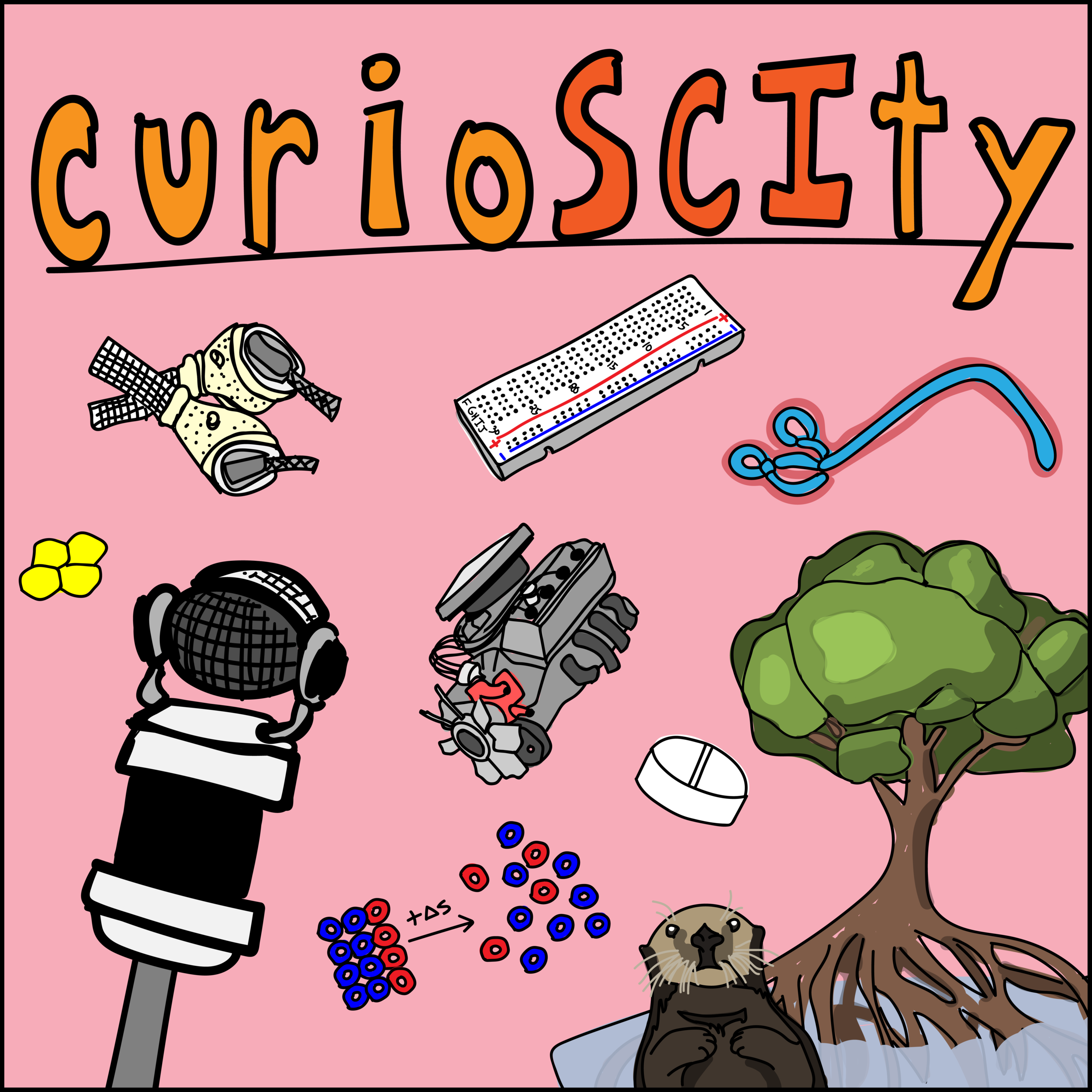31 - The Trials and Tribulations of Graduate Study (w/ Jen Heemstra!)
31. The Trials and Tribulations of Graduate Study
If one completes a college degree but doesn’t have a fully solidified next step, it can look to the casual observer that the logical place to go is a research or professional degree. How are these degrees dissimilar from a bachelor’s degree? What are some common complaints and issues for graduate students today? Let’s learn to be scientifically conversational.
General Learning Concepts
1) What is graduate study and why, by the book, is it challenging?
a. Potential higher education fields: Research or academic degrees (research oriented compared to traditional professional programs) include: master’s degrees in science, arts, or fine arts, often between one and three years. Doctorate of Philosophy degrees, which in the US tend to last for four to eight years, averaging on six. Professional degrees (prepare you for a specific field) include: medical degrees, law degrees, pharmacy, business, social work. These lengths vary. [2]
b. Cost: Depends on worldwide location and degree type. Many doctoral PhD degrees, often associated with the biological or physical sciences, are not funded by the student. Meanwhile, most professional degrees will cost upwards of 100,000 dollars at the time of recording. Masters degrees can be funded or cost. Often, degrees like this will not pay for housing. For some graduate programs, being funded leads to “no guarantee for a degree as one would have for undergraduate”, where that individual would pay for education, though it is clear that “failing out of college” can also happen in undergraduate studies.
c. Over-specialization: A common fear of those who do extra education, overspecialization refers to having enough education to be precluded from jobs. Just as a college degree could potentially prevent one from being hired at a fast food restaurant, graduate degrees could prevent those individuals from certain jobs in their field. [2]
d. Challenge: These programs are all challenging in their own ways and require a multipronged approach. Students will be taking courses, often teaching, often taking milestone exams that dictate their future success in their program. In the academic sciences, the need to publish may dictate graduation time or success.
2) What is not commonly understood to be challenging about graduate study?
a. Impostor syndrome: “Impostor Syndrome is an “individual’s feelings of not being as capable or adequate as others perceive or evaluate them to be” (Brems et al 1994: 183-4)”. Uncomfortably common is academia, likely because of the long careers of many fellows. Individuals commonly feel they are over-represented in intelligence or success, that they won’t live up to other’s expectations.
b. Attachment to advisor: For PhD graduate students, their relationship with their advisor (and hopefully that word is synonymous with mentor) is very tight. The advisor may have a different method of supporting their student: hands on or hands off. They “control” when a student meets important checkpoints: for example, an important exam or a graduation date. The advisor must be capable of convincing the graduate school that the recipient of the degree is deserving (on top of the student’s own progress and contributions), and this relationship can be many years long and strain. There are few ways to properly regulate the power of a “poor” advisor; sometimes, students facing personal conflicts with their advisor will need to start anew in a different lab, which can make them lose years of progress on a research project that stays with the advisor.
i. Subpoint of Funding: Even though many PhDs in the biological and physical sciences are fully funded for the student, someone must pay a salary for that student and their tuition. Often, this falls on the graduate program for a number of semesters but then moves to the official advisor. If that advisor does not have funding for a student, there can be challenges for the laboratory as a whole and can require the students to do additional work for the department to “earn their keep”. This can also put undue stress on graduate students to receive funding from elsewhere, like fellowships.
c. Lack of diversity: Diversity, as discussed in grab bag 2, is a broad topic that encompasses social, economic, religious, racial, sexuality and gender, and other classifications. As mentioned in episode 19, gender disparities between men and women in graduate education can be staggering 80/20 splits, with the climate of those departments being incredibly challenging and unsupportive. Self-identification of racial minorities at institutions across the United States can range to as low as 0%, which negatively impacts students looking for a role model and prevents a proper, diverse faculty from interacting. [2]
d. Isolation: Graduate students in PhD programs who do research may find themselves in small research labs where there are not others to interact, or even in radically different cultural backgrounds that may challenge interaction. Additionally, there can be challenges to interacting exclusively with academics and not interacting enough with “the real world”, which leads to learned behavior and Stockholm syndrome. [2]
3) Personal anecdotes
4) Fun Tidbits (not so fun, in this case)
a. Percentage of those who regret getting a PhD: Commonly attributed between ten and twenty percent, according to the National Academies of Science, Engineering, and Medicine. Additionally, more than one-third of graduate student’s report being depressed during their studies, though it could also be partially attributed to the particularly trouble graduate students being usually willing to submit to surveying. [2]
b. Personal comments about why grad school is great:
5) Solicited Questions
a. Should I go to grad school?
b. What are faculty’s responsibilities to break toxic culture of academia?
c. How can I support a graduate student who needs help with mental health?


